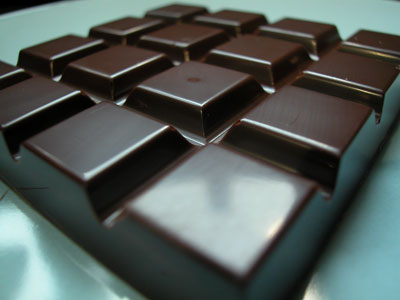UPDATES
Media Week: Bitter Chocolate; Unsettling introductions; Chill It
August 11, 2011 | Allon Lee

Bitter chocolate
The Daily Telegraph‘s Tim Blair commented in the Spectator (July 30) on the motivation of Leftist activists directing their rage at Israeli-owned chocolate shop Max Brenner.
Blair suggested they are obsessed with the chocolatier as a rallying cause in lieu of criticising federal Labor policies identical to those they noisily attacked when the Coalition was in power.
“Still, Leftist rage must always find a target. If it isn’t the treatment of claimed refugees or a carbon tax that absolves Big Oil, it’ll be something more convenient and less likely to offend the untouchable Gillard government. A few weeks ago, 18 demonstrators were arrested in Melbourne following a protest against the Max Brenner store chain. The previous month, two demonstrators were charged after a raucous protest outside a Max Brenner shop in Sydney. The Brenner chain sells chocolate. It happens to be owned by an Israeli company, hence the outrage. That’s where the heat is protest-wise in 2011. The Left is angry about Jewish sweets.”
Unsettling introductions
ABC Radio program “The World Today” (27/07) host Eleanor Hall’s introduction on the Israeli tent protest movement shoehorned in a suggestion that protesters are “raising questions about whether the Israeli government has spent too much money on building Jewish settlements in the occupied West Bank”.
In the story Anne Barker claimed “At the heart of the housing protest is a perception the Israeli government cares more about foreign issues like Iran or the Palestinian conflict than with living conditions for its own citizens” and then quoted an Israeli columnist, Ben Caspit, who discussed the money spent on settlements in relation to the protests.
It is fair to say that the overwhelming majority of protesters aren’t motivated by settlements or foreign policy but the perception that Israel’s prosperity is not being shared equally.
The following day, ABC “AM” host Tony Eastley said Palestinian Authority envoy Dr Ghassan Khatib was in Australia seeking support for UN recognition of a Palestinian state as “part of a wider strategy to pressure Israel into restarting talks. But Australian support for the Palestinians at the UN would come at a cost, not only angering Israel and the United States, but it could also affect Australia’s chances of one day getting a seat on the Security Council.”
Ignoring the Israeli government’s repeated attempts to convince the Palestinian leadership to return to the negotiating table, Eastley’s claims about the effects of an Australian vote for Palestinian statehood seems the opposite of what most observers predict.
Chill it
The Australian‘s Foreign News Editor Greg Sheridan (01/08) warned that “the Arab Spring has turned cold” and it is “surely only the certifiably insane who would argue that Israel is central to the dysfunction and conflict within the Arab world.”
He also noted, “The second consequence for Israel is that it cannot possibly consider peace treaties — with its neighbouring states or with the Palestinians — until the shape of the new Middle East is clear, certainly until it knows whether its peace with Egypt will hold.”
Allon Lee
Tags: Australasia





